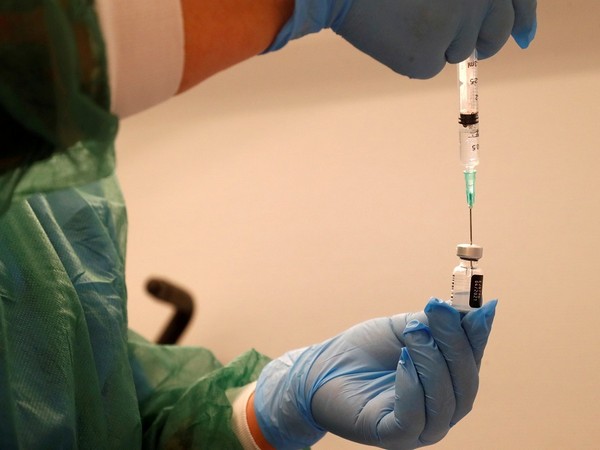GAVI seeks political support for COVAX as rich nations strike fresh vaccine deals
"There is almost a sense of vaccine panic," Seth Berkley, CEO of the GAVI alliance that co-leads the COVAX multilateral vaccine facility with the World Health Organization (WHO), told a press conference for U.N. correspondents in Geneva. "The headlines this week clearly just told us how changeable supply scenarios are right now even for well-resourced governments," he said.

Political support is needed for a global scheme to vaccinate people in poor and middle income countries as wealthier nations strike fresh bilateral deals with developers to secure limited supplies, the head of the GAVI vaccine alliance said on Tuesday. "There is almost a sense of vaccine panic," Seth Berkley, CEO of the GAVI alliance that co-leads the COVAX multilateral vaccine facility with the World Health Organization (WHO), told a press conference for U.N. correspondents in Geneva.
"The headlines this week clearly just told us how changeable supply scenarios are right now even for well-resourced governments," he said. The European Commission said earlier it would finalise a proposal by the end of the week to require pharmaceutical firms to register their vaccine exports from the European Union, while insisting it had no plans to impose an export ban.
EU countries learnt late last week that deliveries of the vaccine from AstraZeneca would be some 60% lower in the first quarter than initially indicated. There have also been reduced deliveries of a vaccine jointly produced by Pfizer and BioNTech. Berkley said that a global political consensus was needed behind the COVAX facility, which he said now aimed to deliver 2.3. billion doses by year-end, including 1.8 billion doses to lower income countries at no cost to their governments.
"We are currently on track to meet our initial objective of vaccinating 20% of the population of each and every lower income country, enough to protect the health workers and the most vulnerable high-risk groups," Berkley said. 'DIMINISHING RETURNS'
GAVI and partners would share "indicative dose allocations" with countries this week, he added. Berkley, asked about possible EU vaccine export bans, noted that 190 countries had joined the COVAX facility and that U.S. President Joe Biden had announced it was joining and providing significant funding.
"Our hope is this will lead to a consensus of trying to keep the vast majority of work in a pandemic effort to be done through multilateral mechanisms and not bilateral. We have no ability to stop those bilateral mechanisms," he said. "And the challenge right now frankly is that there are new bilaterals being done now and at some point it goes to diminishing returns, there won't be adequate doses, there won't be adequate supplies for vaccines, the best vaccines may not be able to be scaled up. We are struggling with the number of bilaterals going on."
South African President Cyril Ramaphosa, speaking at a virtual meeting of the World Economic Forum earlier on Tuesday, urged wealthy countries not to hoard surplus vaccine supplies. Britain has ordered 367 million doses of seven different vaccines - some already approved and some candidate drugs - for its population of roughly 67 million, while the European Union has secured nearly 2.3 billion doses for its 450 million people.
(This story has not been edited by Devdiscourse staff and is auto-generated from a syndicated feed.)
ALSO READ
Joe Biden vows 'ironclad' support for Israel's security amid threats from Iran
Joe Biden hosts Japan's PM at White House, in strong message to China over policies in Indo-Pacific
Tax Day reveals a major split in how Joe Biden and Donald Trump would govern
US President Joe Biden condemns Iran's attack on Israel; to convene convene G7 leaders' meeting on response.
Joe Biden wins the Democratic presidential caucuses in Wyoming, reports AP.










